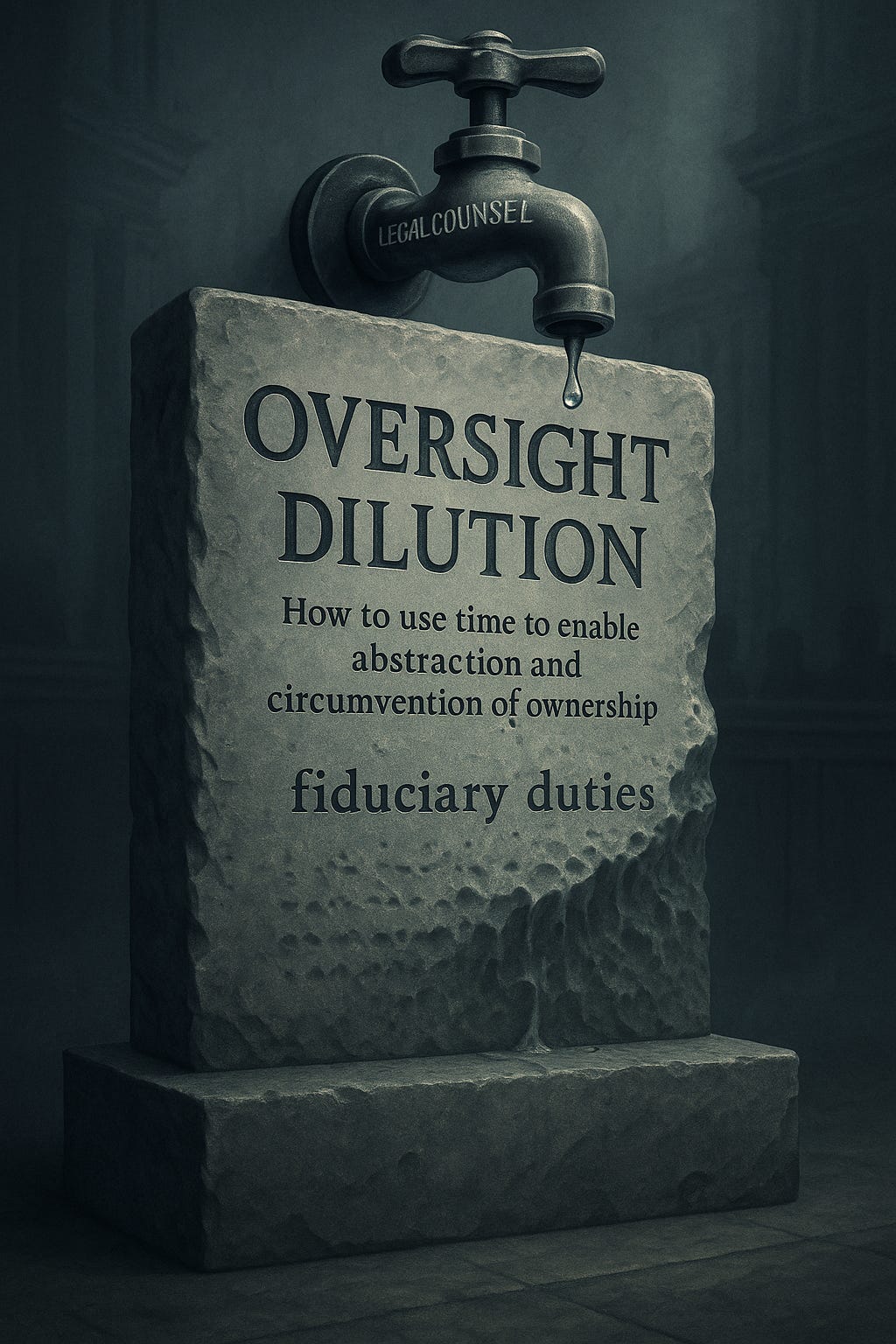A Willing Shield*
How Fay Christian and Lada Stasko Carried Conway’s Agenda
That night, I dreamed again.
This time, I was back on Eleanor’s pier. The barricades had been replaced with polished iron benches. One of them was occupied. David Kraut, but softer. He smiled at me.
We looked out over the East River. The railing gleamed like it had been recently installed.
David nodded toward the end of the pier, where the barricade had been.
“You know Related built this whole thing, right? Bad concrete work, the whole foundation is corroded. Rick told me.”
“Rick the blogger?” I asked.
“They call it a RIOC problem now. Blame it on a prior administration. Same trick every time. Memory-hole it, then blame Albany—or ghosts. While Howard Polivy sits quietly hanging on to his seat as the institutional memory.”
The dream thickened. Reality turned syrupy. I turned to him again, and this time, he wasn’t smiling. “I used to think you were watchdogs,” I said.
“Turns out we were just well-fed decoys. Distract the public, absorb the outrage, bow out with dignity.”
“Some of you tried,” I added.
“Sure. A few. Lydia tried. Shinozaki tried. Judy Berdy too, once upon a time.”
“What about Fay?”
He sighed.
“Fay was perfect. A retired teacher who wanted admiration more than answers. We gave her ceremony. She gave us obedience. That’s how it works.”
“But she interrupts, she undermines, she fights.”
David shrugged.
“It’s not rebellion if you’re punching down. She fights Lydia. Not the process. Not the contracts. Not the corruption.”
Then he said it plainly:
“They pick people like her on purpose. People who crave being seen. So when they’re asked to look away, they do. With gratitude.”
Fay, the Obedient Firestarter
I woke up and turned to my notes from the June 11th Governance Committee meeting. It was all still there. The treasurer debate. The deliberate effort to gut oversight. Lydia's voice, steady even as it cracked. Jeremy Steckel trying, politely, to explain what basic fiduciary responsibility looks like.
And Fay.
Fay, who hadn’t even read the bylaws, yet demanded their vote be delayed the previous month. Fay, who was confused by her own comments, who garbled advisory roles with appointments, who never understood the structure but always seemed ready to knock it down.
And yet, somehow, her confusion was useful.
Because Conway stepped in—not to clarify, but to redirect. He transformed Fay’s rambling grievances into a formal motion: to shift the power of appointing advisors from committee chairs to the chair of the full board. It was a move designed to consolidate power—specifically, under the thumb of Housing Community Renewal.
Fay became his shield. She didn’t write the strategy, but she carried it like a torch. If governance is a symphony, Fay brought a kazoo and played it loudly out of tune
Lada, the Willing Deflector
Then came Lada.
Lada, RIOC’s internal counsel, fought—not for the board’s independence, but against it. She challenged external counsel, dodged clear definitions, and dismissed the role of the treasurer as unnecessary. Jeremy, trying his best not to roll his eyes, gently insisted on keeping language for basic checks and balances. But Lada wasn’t listening. She wasn’t debating—she was deflecting. Oversight, in her hands, was treated like an inconvenience.
Lada argued against oversight like a cat fights a bath—loudly, irrationally, and with no clear exit plan.
Conway’s Quiet Coup
And that’s where Conway thrived.
He’s the guy who shows up to the play halfway through the third act, applauds at the wrong moment, and asks if there’s a snack bar.
But behind that aloof timing was strategy.
With Fay’s confusion and Lada’s deflection, Conway didn’t have to state his position. He got what he needed without taking ownership. He let their ignorance pave the way for diluted language, less accountability, and a final draft of the bylaws stripped of purpose.
There was no vote that night. Just a quiet erosion of principles. The committee, chaired by Lydia, prepared the bylaws one last time—less sharp, less binding, less meaningful.
Fay had become the centerpiece not because she led but because she enabled. And Conway knew exactly how to use her.
Lydia didn’t fight fire with fire. She stayed steady. But even a steady hand can feel the tremor underneath. Lydia didn’t raise her voice. She raised the standard—and that’s why they worked so hard to lower it.
And what remained of that meeting was something else:
A reminder that incompetence, when it’s convenient, becomes strategy.
*This is a work of narrative storytelling inspired by real events. Some characters, dialogue, and scenes are imagined to convey broader truths and do not depict actual conversations or individuals.



I'd rather be a useful idiot than just an ordinary idiot.